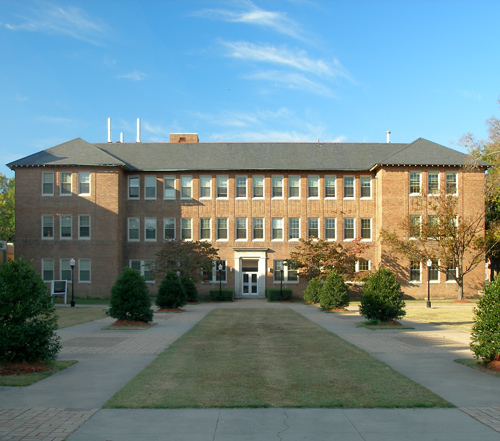By Hampton University,
The Hampton University School of Science has introduced CURE (Course-based Undergraduate Research Experience) to all Biology 105 courses. CURE is a novel form of classroom-based courses that offer students hands-on experience conducting original research and offer faculty the opportunity to generate new information within their discipline.
“Here at Hampton University, we offer a variety of resources to our students that provide them the skills and knowledge to excel in their chosen fields. We are thrilled to see the Hampton University School of Science doing great things and encouraging our students to uphold THE Standard of Excellence,” said Hampton University President Dr. William R. Harvey.
CURE was introduced to the Hampton University School of Science under the leadership of Interim Dean and Associate Professor of Biology, Dr. Isi Ero-Tolliver. She stated, “As a senior biology advisor for the past four years, I saw that most of our students were not receiving internal research experience. I learned additional skills and partnered with other institutions to deliver CURE to our students. I originally brought the CURE institute workshop in 2019 and we were the first university to launch CURENet2 mobile with the help of UGA Professor of Biochemistry and Molecular Biology, Dr. Erin Dolan. Since then, I attended workshops and used my molecular biology background to train faculty (Mr. Druitt, Dr. Fennell, and Dr. Adebola) and students with the CURE methods that they could implement them in their classrooms. As a result of this effort, this is the first time that all students are receiving research experience within their first year of undergrad studies in the biology department.”
CURE will create classroom learning experiences for students to address a research question or problem with unknown outcomes or solutions that are of interest to external stakeholders.
Numerous studies have shown the benefits of CURE for students:
- Enhances self-confidence in scientific thinking and the development of scientific process
- Develops skills to increase inclusivity in science for unrepresented populations
- Improves persistence in science and medicine
- Demonstrates closer integration of teaching and research
- Provides positive influence on promotion and tenure
- Provides publication of research in both science and education journals
- Provides greater impact on research programs
- Helps faculty identify, recruit, and train students to join their research labs
“CURE has been great. It has allowed students who are not able to get internships to conduct research. They are gaining experience in molecular biology techniques that will make them more competitive for graduate and medical school. Students were able to create their own research projects, allowing them to take ownership. Students are much more engaged and proactive knowing that this is their project. We plan to implement CURE in other lab sections, due to the success we are experiencing in our BIO 105 laboratory,” said Assistant Professor, Department of Biological Sciences, Dr. Herman Fennell.
“By introducing our students to the CURE Project and DNA technologies at the freshman level, we have greatly enhanced the scientific experiences of the BIO 105 Introductory students in our courses,” said Hampton University Assistant Professor of Biology Science and Assistant to the Dean, Michael D. Druitt, MS.
“CURE provides opportunities for undergraduate students to engage in inquiry-based learning using molecular techniques at organismic level, and at the ecosystem scale. Students can lay a solid foundation for future work in STEM-related careers,” said Assistant Research Professor, Department of Marine and Environmental Science, Dr. Tunde Michael Adebola.

